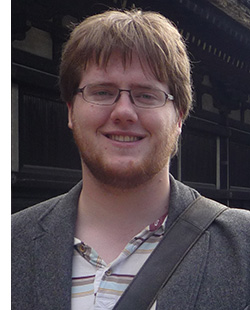
Deciding where you want to conduct your graduate studies and on what kind of research are very difficult and important choices. Getting into the right program—ideally on a full scholarship—is even more challenging. Grades are certainly important, but there are other activities that can play a key role in starting your graduate studies on the right foot. Below are a few tips on how to make the most of these “extracurricular activities” to advance in your career.
Seek out new experiences
There are many ways for undergraduate students to get different kinds of experience and build a professional network, which will be helpful when applying to graduate school and other opportunities. Involvement with OSA Student Chapters, for example, offers valuable contact with other students and professionals with similar interests. Attending conferences and summer schools can broaden your scientific horizon and will help you to become more involved in your field. International exchanges are also valuable resources: a semester or year abroad will open your mind and provide new perspectives.
In my opinion, the most important activity is the acquisition of direct, firsthand research experience. Many research groups and companies offer internships for undergraduate students, which are a valuable addition to your CV and give you a glance into the academic or industrial world before you begin your graduate studies.
Apply, apply and apply
The lack of funds for research in academia is a fundamental and growing issue. It is therefore important to actively look and apply for as many scholarships and funding opportunities as possible. For example, there are many scholarships available to cover travel and other expenses for conferences, internships and exchanges. Even if these scholarships are small, there are very few reasons not to apply, and their impact can be significant for your CV. At first you may have to submit several applications to receive just one award, but after you have won a couple of scholarships and gathered some experience, you will find that success attracts more success.
Dare to ask
In my experience, there is a fundamental rule for a successful academic career: If you want something, ask for it. Being proactive and intelligently asking for what you want will help you throughout your professional life. For example, if you are interested in an internship, invest time and effort in writing a good and specific application letter, ask for help from someone who has already written successful applications, and apply even if no positions are advertised. The worst that can happen is that you do not get it.
The same applies if you want to collaborate with a research group, visit a conference or attend a summer school. If you do your homework and present legitimate reasons why you want to do it and how it will benefit your career or research, then do not be afraid to ask. You should be mentally prepared to have your request denied, but even then, the feedback and practice you receive will be valuable for the future.
While grades are certainly important, combining them with other types of experience will strengthen your CV and will help you get the right graduate position and succeed in academia. You can also take advantage of these opportunities without outstanding grades if you start small and apply often. The more you apply, the easier it will become.
Christian Reimer completed his German Diplom in Physics (equivalent to a M.Sc.) at the Karlsruhe Institute of Technology, Germany. During his studies, he participated in exchanges, research projects and internships at Draeger Inc., Germany; Heriot-Watt University, Scotland; the University of St Andrews, Scotland; Surrey University, England; the University of Glasgow, Scotland; and the University of Sydney, Australia. He is currently writing his Ph.D. at the Institut National de la Recherche Scientifique (INRS, http://www.uop.ca/), Canada, supported by a Vanier Canada Graduate Scholarship (www.vanier.gc.ca).
